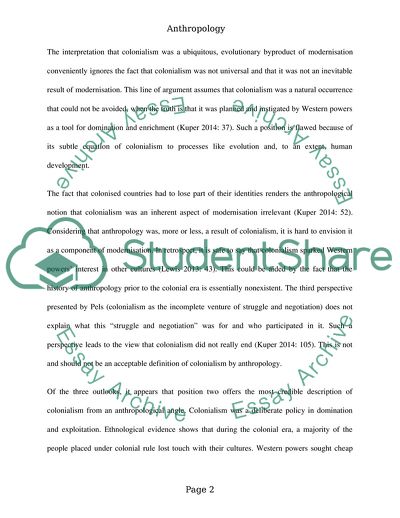Cite this document
(Anthropology and Colonialism Literature review Example | Topics and Well Written Essays - 1632 words, n.d.)
Anthropology and Colonialism Literature review Example | Topics and Well Written Essays - 1632 words. Retrieved from https://studentshare.org/anthropology/1876320-using-ethnographic-examples-critically-evaluate-anthropological-perspectives-on-the-processes-of-colonialism
Anthropology and Colonialism Literature review Example | Topics and Well Written Essays - 1632 words. Retrieved from https://studentshare.org/anthropology/1876320-using-ethnographic-examples-critically-evaluate-anthropological-perspectives-on-the-processes-of-colonialism
(Anthropology and Colonialism Literature Review Example | Topics and Well Written Essays - 1632 Words)
Anthropology and Colonialism Literature Review Example | Topics and Well Written Essays - 1632 Words. https://studentshare.org/anthropology/1876320-using-ethnographic-examples-critically-evaluate-anthropological-perspectives-on-the-processes-of-colonialism.
Anthropology and Colonialism Literature Review Example | Topics and Well Written Essays - 1632 Words. https://studentshare.org/anthropology/1876320-using-ethnographic-examples-critically-evaluate-anthropological-perspectives-on-the-processes-of-colonialism.
“Anthropology and Colonialism Literature Review Example | Topics and Well Written Essays - 1632 Words”, n.d. https://studentshare.org/anthropology/1876320-using-ethnographic-examples-critically-evaluate-anthropological-perspectives-on-the-processes-of-colonialism.


